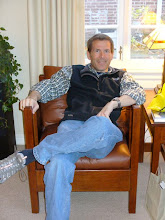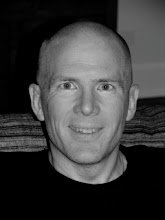WHY I STAY
Tuesday, February 22, 2022
Where I am in Belief
Posted at ByCommonConsent 17 December 2018
There has been an unusual flurry of talk lately about “Middle Way Mormons.” The Salt Lake Tribune (Peggy Fletcher Stack); By Common Consent (Sam Brunson); Wheat and Tares (a series); and even Times and Seasons ran a piece. I commented, I provided background, I was quoted, but I have resisted doing my own “how it is” counter-essay. Until now.
I’m a “Middle Way Mormon” by everybody’s definition. It’s not my label—I prefer “Christian who practices with Mormons.” But it’s better than the alternatives on offer. This is not a to-be-wished-for designation—a high ranking Church leader sympathized with me about “living on a knife edge.” It’s just a label for a modern reality.
Somewhere in the middle of all the commentary, George Andrew Spriggs observed that “successful Middle Way Mormons . . . undercut the traditional boundaries and truth claims about the church.” This observation challenged me to describe the church I belong to. I have tried this before, and the reaction has been “no—doesn’t exist, you’re wrong, that isn’t a thing—just no.” Because of this history, exposing myself this way is scary.
This is long. This is personal. This is my opinion. For today. (It may change.) This is also my life, the real stuff. Reportage, not polemic. You should not be like me. You have been warned.
* * *
As a Christian who practices with members and at the meetings of The Church of Jesus Christ of Latter-day Saints, sometimes my choices come down to tradition and a hymnal. At the same time, I am officially a member of the Church. I haven’t resigned. I value my baptism. I take the sacrament with intent.
So what is this Church I belong to? As I see it. As I live it.
I view Joseph Smith as one of the religious geniuses of the 19th century, a man who had a theophany, from whom and through whom several books of scripture came to be, who experimented and collected and assembled a religious vision. And a prophet, in the sense of receiving the word of God and a charge to speak it.
Not necessarily a good man. Not right all the time. Not necessarily true to his own insights. Not always consistent.
I view founding a church, restoring priesthood, organizing ordinances and sacraments, and developing temple practices, as 19th century syncretic work by well-meaning men choosing from among existing Christian traditions.
I view the Book of Mormon as a 19th century creation. I read it as scripture. I find the subtitle “Another Testament of Jesus Christ” the most correct and useful description. The Church uses the Book of Mormon as a ‘proof of history.’ I don’t find value in that approach. The Church does not (very much) rely on the Book of Mormon for administration or theology. But I do read the Book of Mormon for theology and Christology and more. What I read impresses me as certain versions of New Testament Christian, Pauline, and even Trinitarian traditions, with flourishes.
For better or worse, I don’t find much value or spend much time with the Doctrine & Covenants or the Pearl of Great Price. I try to remain conversant, but in the limited sense of staying relevant in the community and not as a religious or devotional practice.
My understanding of prophets is that their job is to speak the words God gives them (not to speak “for God”). In that vein I consider Joseph Smith and other Church leaders as prophets. My operating assumption is that when a person is called to be a prophet, a tiny percentage of his or her words will turn out to be God’s words, they won’t necessarily know which are which themselves, and they may not understand the meaning or relevance of the words they are directed to say.
As a practical consequence, I apply a 50/50 skepticism even to statements labeled “the word of the Lord,” which looks like a cafeteria approach to General Conference talks and to the Doctrine & Covenants. For example, I view D&C 1:30 as an exaggeration, D&C 22 as the natural human expression of a restorationist mindset, and D&C 132 as a mistake—a confusing version of a Joseph Smith insight driven by a mixture of Bible study, wishful thinking, and domestic conflict.
Because I understand prophets (historically) to be mostly misunderstood outsiders with a revolutionary message, I think the Church’s practice of combining the prophet and president roles is problematic. I look for other prophets in addition to Church leaders.
I do not have a sense of divine destiny about the Church. The Church of Jesus Christ of Latter-day Saints is the survivor of a series of existential crises. A succession crisis. A crisis over polygamy. A crisis over financial viability. A crisis over the participation of men and women of relatively recent African descent. We tell the survival story after the fact, but I don’t view survival as predetermined. I can imagine the Church failing any one of the past crises. I can imagine the Church failing the next one.
I see the Church in crisis now. Its dealing with challenges to an identity myth built on a heavily manipulated white-washed history — alongside a theology built around eternal gender essentialism which makes it difficult to incorporate principles of feminism and to include non-binary persons in the Plan. I do not know whether the Church will survive. More accurately, I don’t know what the survivor will look like and how I will relate to it.
The Church offers a rich selection of Sacraments (ordinances) and a variety of rituals, which belong in a Christian practice and which I appreciate and celebrate. Not as unique or indispensable, but as valuable and inspiring.
On the other hand, embedded in Church practice are secret loyalty oath covenants, and an interview and disciplinary system serving up bishops as judges, that make idols of the institutional Church and its human leaders. I reject and avoid these parts of Church practice.
I view the institutional and administrative practices as built on good intentions (“guided by the spirit”). Most leaders are sincere and trying to do right. I have seen some frauds and some thieves, and too much abuse—ecclesiastical, emotional, sexual—but the most common sin of Church leaders is sucking up (managing up or making the boss happy or working for the next promotion).
I observe that good intentions are not the same as decision by principle, or decision by consensus or vote, or decision by systematic observation and experiment. Good intentions do not guarantee results. I do not see evidence of unusual foresight in Church decision making. I do not see a better than ordinary record of good decisions. I do see some very bad decisions.
Finally, the Church has almost nothing to do with my lived and living experience with God (the real thing, not doctrine or description, philosophy or religion) or my personal devotional life including my prayers. I consider them separate worlds.


